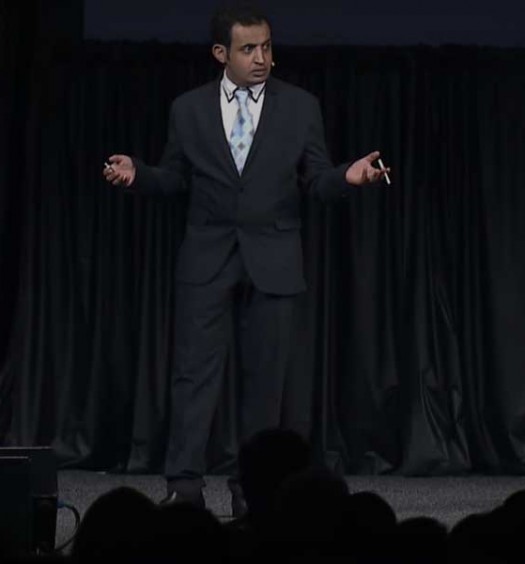1-What does it mean to be a good manager nowadays?
First of all, it starts with having a clear idea of where you want to go (company goals) and a game plan on how to get there (the roadmap). Once you have the roadmap, the next step is to identify the resources you need in order to reach your destination. Most of the time, we are talking about human resources. Understanding the goal and the resources needed is important, as it simplifies the process of aligning the overall interests of the company with the individual interests of the employee. A clear job description with clear expected outcomes will ensure that both sets of interests are aligned. Once that is done, you must trust that person and give them the bandwidth and resources needed for them to develop their role and meet the agreed-upon objectives with freedom. This freedom, combined with expected outcomes will end up empowering the employee to take responsibility and develop a sense of ownership.
Another important element is to identify the unique talent in each person, and turn that talent into performance by harnessing it. Each person is different and will bring something distinct to the table. A good manager should be able to identify those talents and incorporate them in a coordinated way, with a view to meeting the company’s overall goals. If a person is methodical with great attention to detail, let them run operations and execution, and try to find other people to assist them with other tasks that do not motivate or inspire them. By understanding each person’s talents and limitations, you avoid setting unrealistic expectations and you focus on maximising performance in the required fields.
2-What skills must the manager of tomorrow have?
The main qualities a manager should have are:
• The ability to set clear goals and expectations
• The capacity to foster a feedback culture based on truth and trust
• Commitment to communication as a priority
• Empathy and good listening skills
• The capability to align company growth with individuals’ personal growth
3-Flexibility, distance, etc. – what advantages does the current situation have for a manager?
There are many advantages to working remotely. The obvious one is financial, as you can reduce office and travel costs. The second is efficiency. If everyone has a clear mandate and objectives, you can focus on what you have to do and will be less affected by distractions. But you obviously need to be disciplined and have the right mindset. In order to keep ideas flowing, we have set up daily, weekly and monthly calls. Each one of them has a clear agenda, so that we are not meeting just for the sake of meeting. We also run retrospective meetings, so that we can see how we performed against our targets and find ways to improve. Instead of counting the days until we get back to normal, we have embraced working from home and tried to put in place the structure needed to make it work. Working remotely forces you to be more disciplined and more efficient. Another example of efficiency is punctuality. I cannot remember a single office meeting that started on time, yet every single Zoom call starts within a minute of its scheduled time. It keeps surprising me, but it’s a fact.
Another additional benefit is work/life balance. Because we measure results and not office presence, we allow people to organise their day as they see fit, as long as they deliver results. This comes back to giving freedom in exchange for responsibility and ownership.
4-What do you think the crisis has fundamentally changed?
The lockdown forced the whole world to work in a different way for an extended period of time. We have tested new ways of communicating and new ways of working, with fantastic results. I think we can say that the new model has been validated. I don’t feel any urge to go back to the “old way”. Most polls show that people would rather work from home two to three days a week and have a better work/life balance. If people have proved that they can be trusted, why not offer this flexibility? I think we will end up with a hybrid or fully flexible model.
This opens up a whole new perspective for both companies and employees. Why wouldn’t someone be able to perform at their best living in the countryside or in the mountains? The company will also now be able to fish from a wider talent pool. You are no longer restricted to a particular location, and you can hire the right candidate in a different city or even country.
![]()
Sparta brings digital solutions to solve oil trader’s everyday issues by providing live trading insights to our clients for them to make faster and more informed decisions before their competition in order to capture market opportunities. Sparta also provides powerful analytical tools with price points currently unavailable to the market. Their purpose is to assist traders in sourcing and building their data intelligence and analytical capabilities.
For more details please visit Sparta Commodities Website















